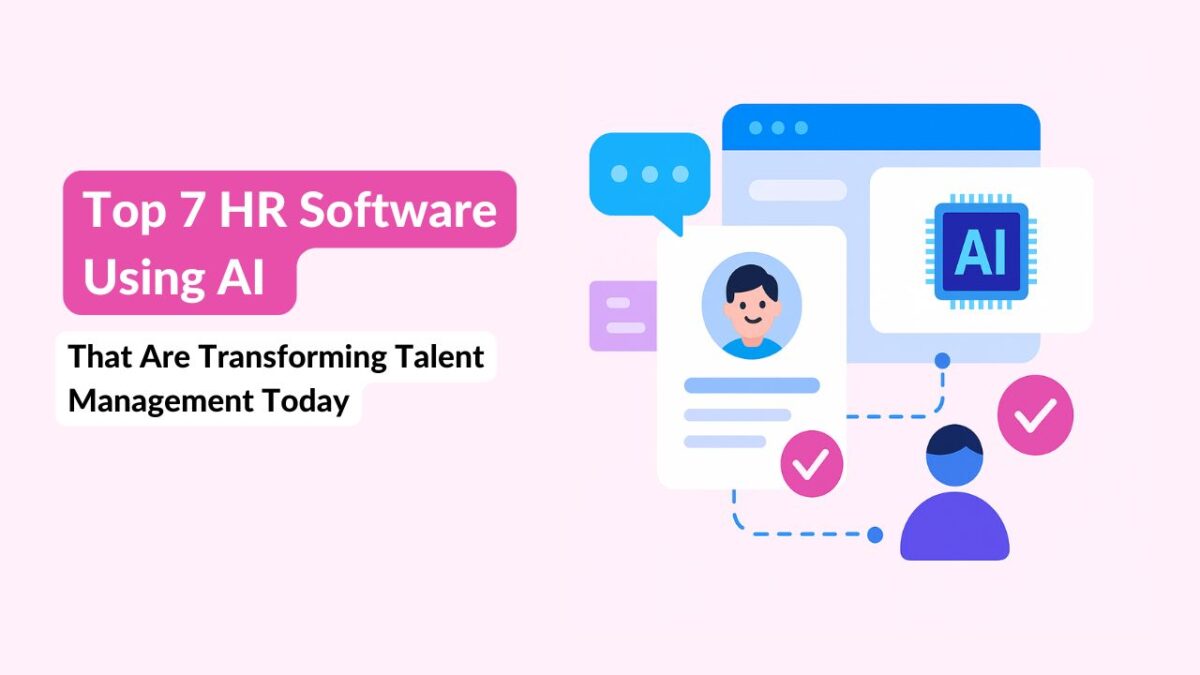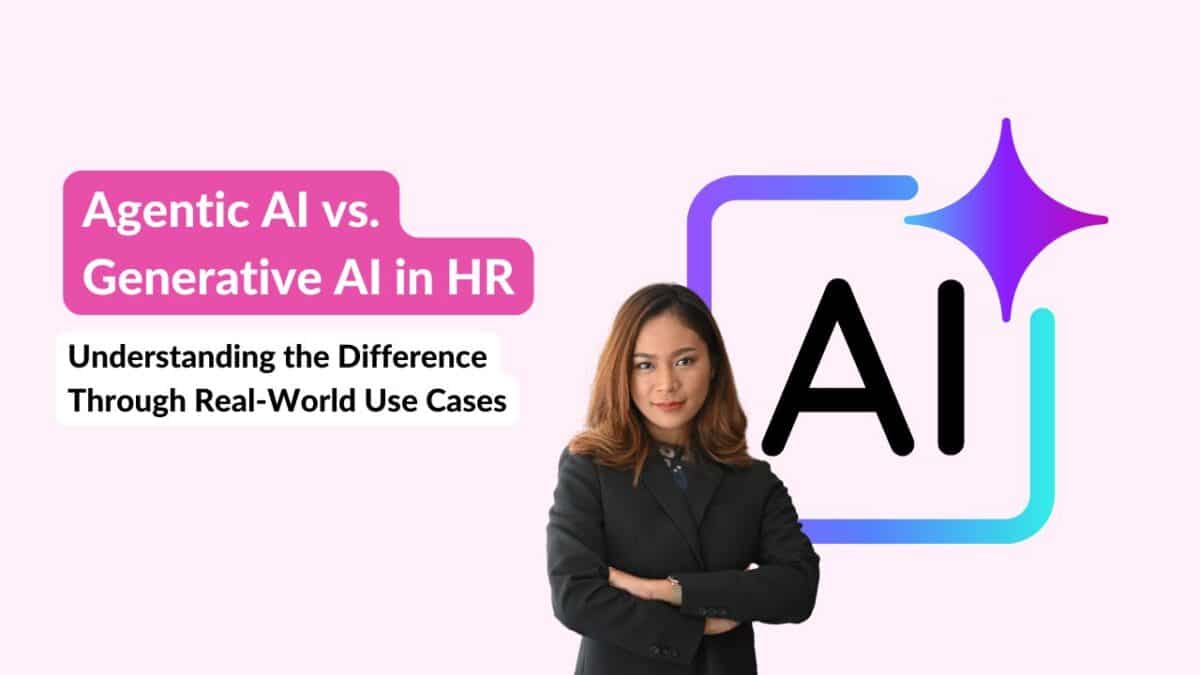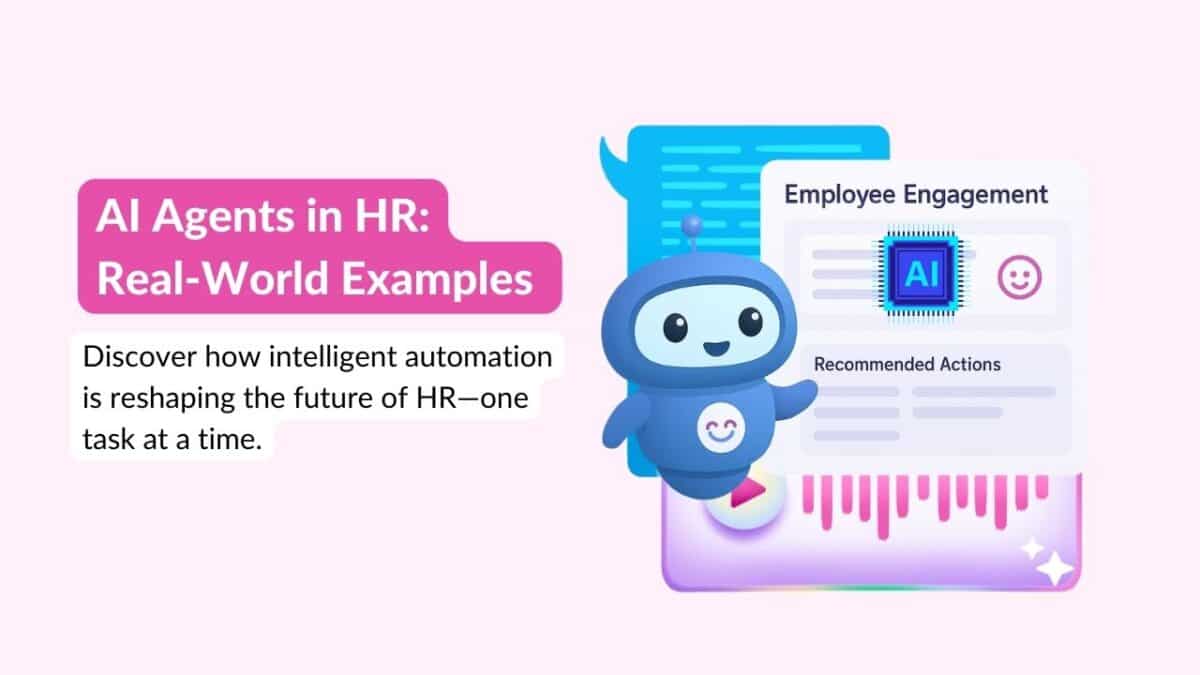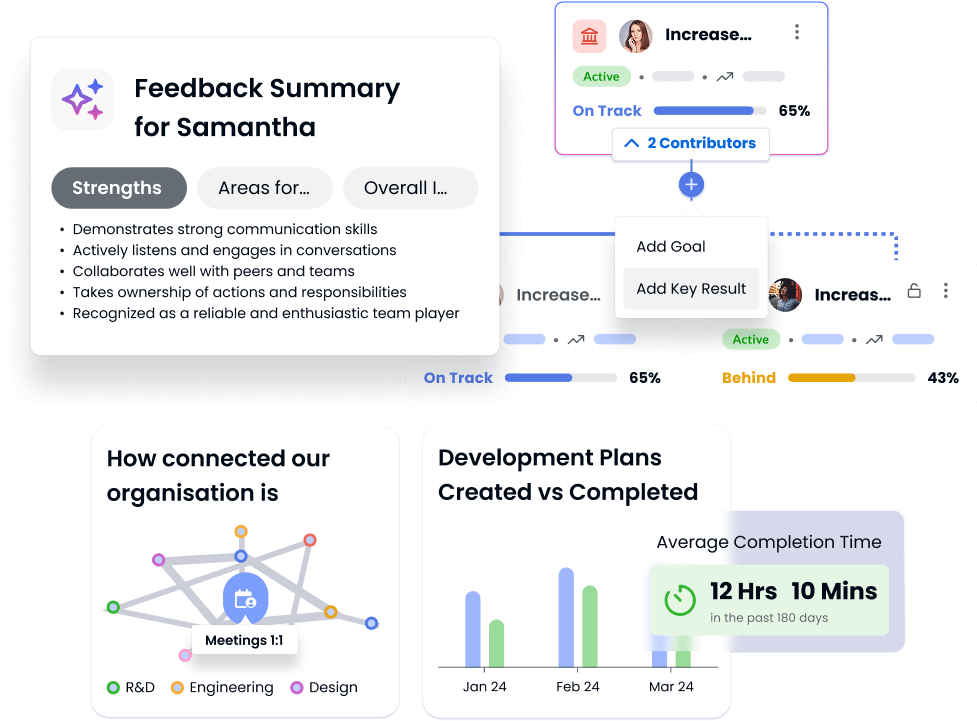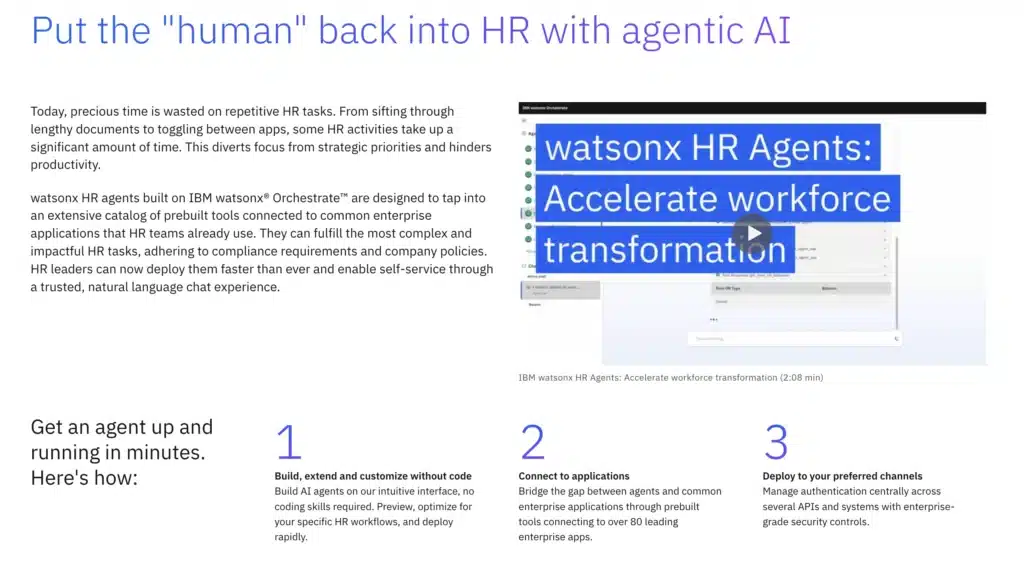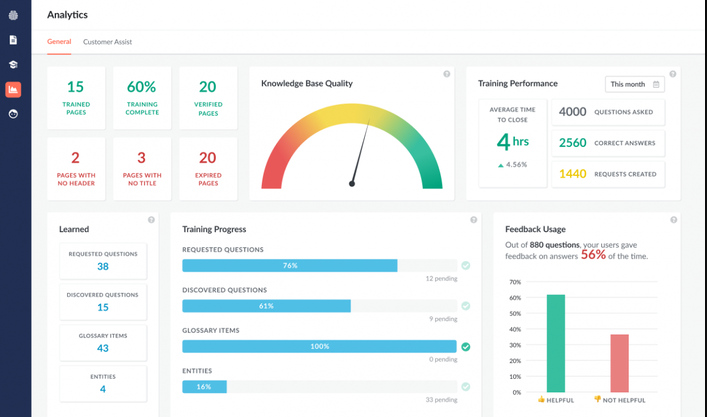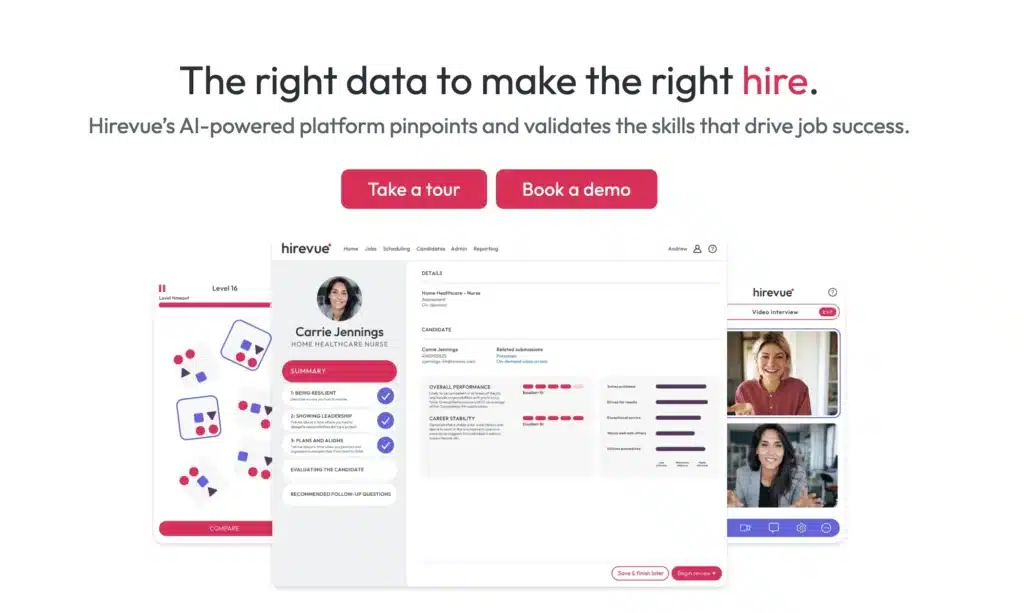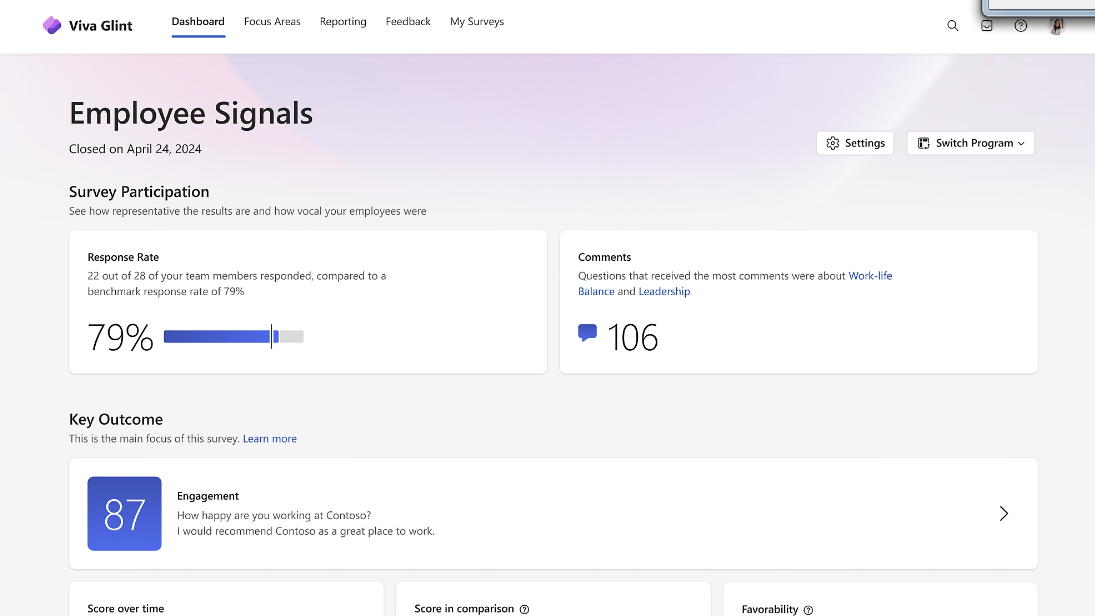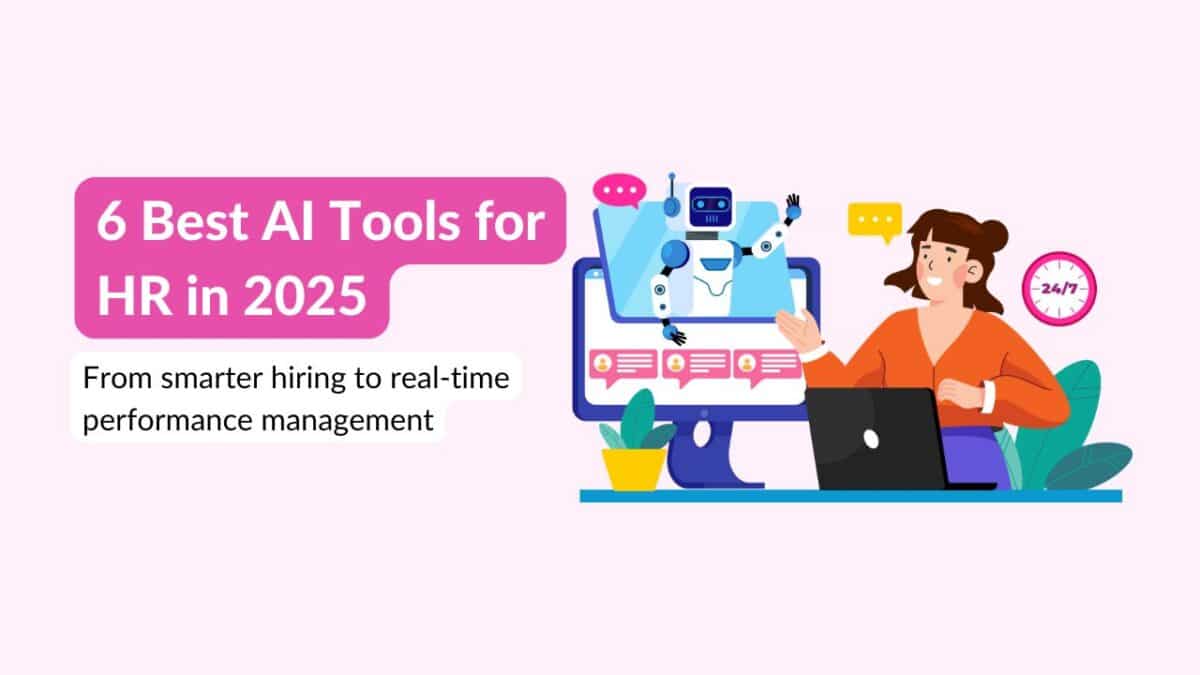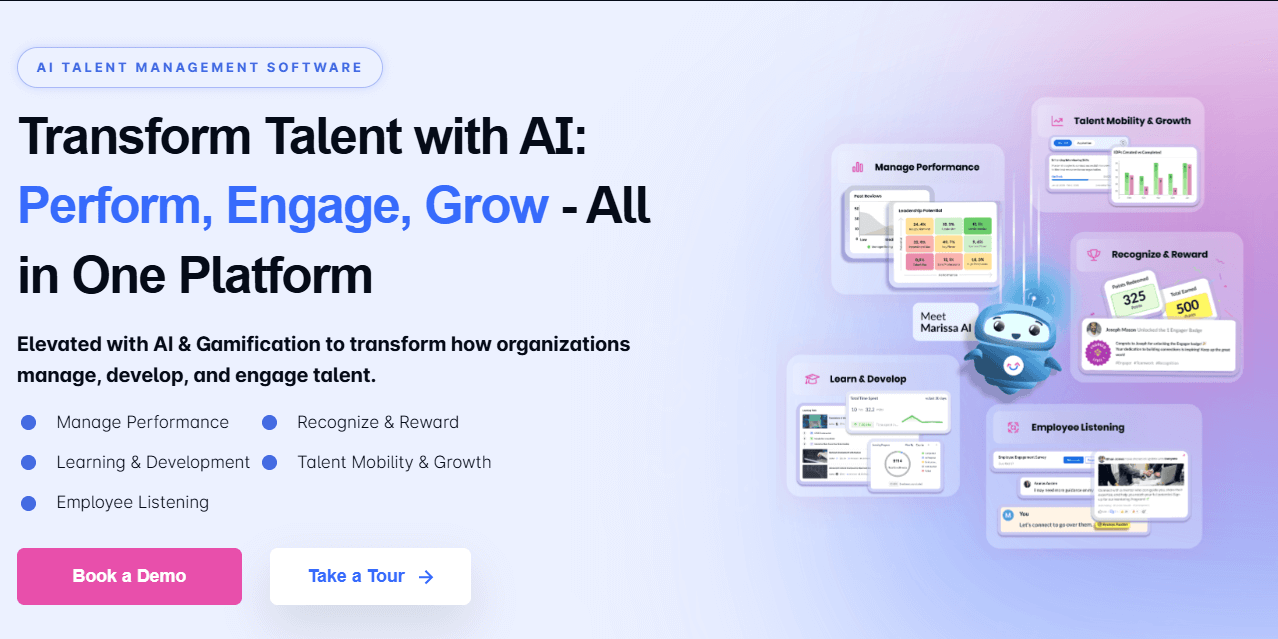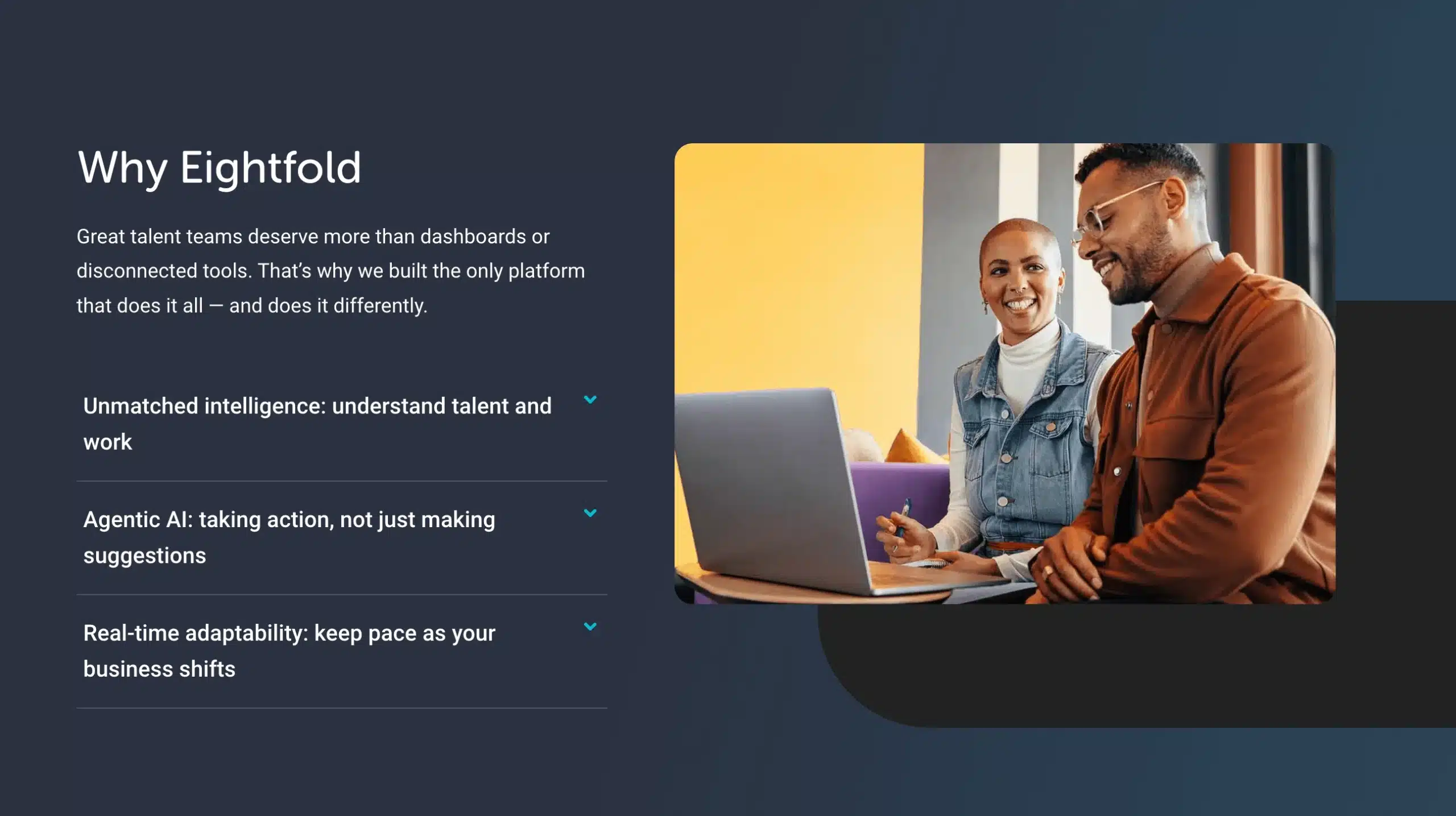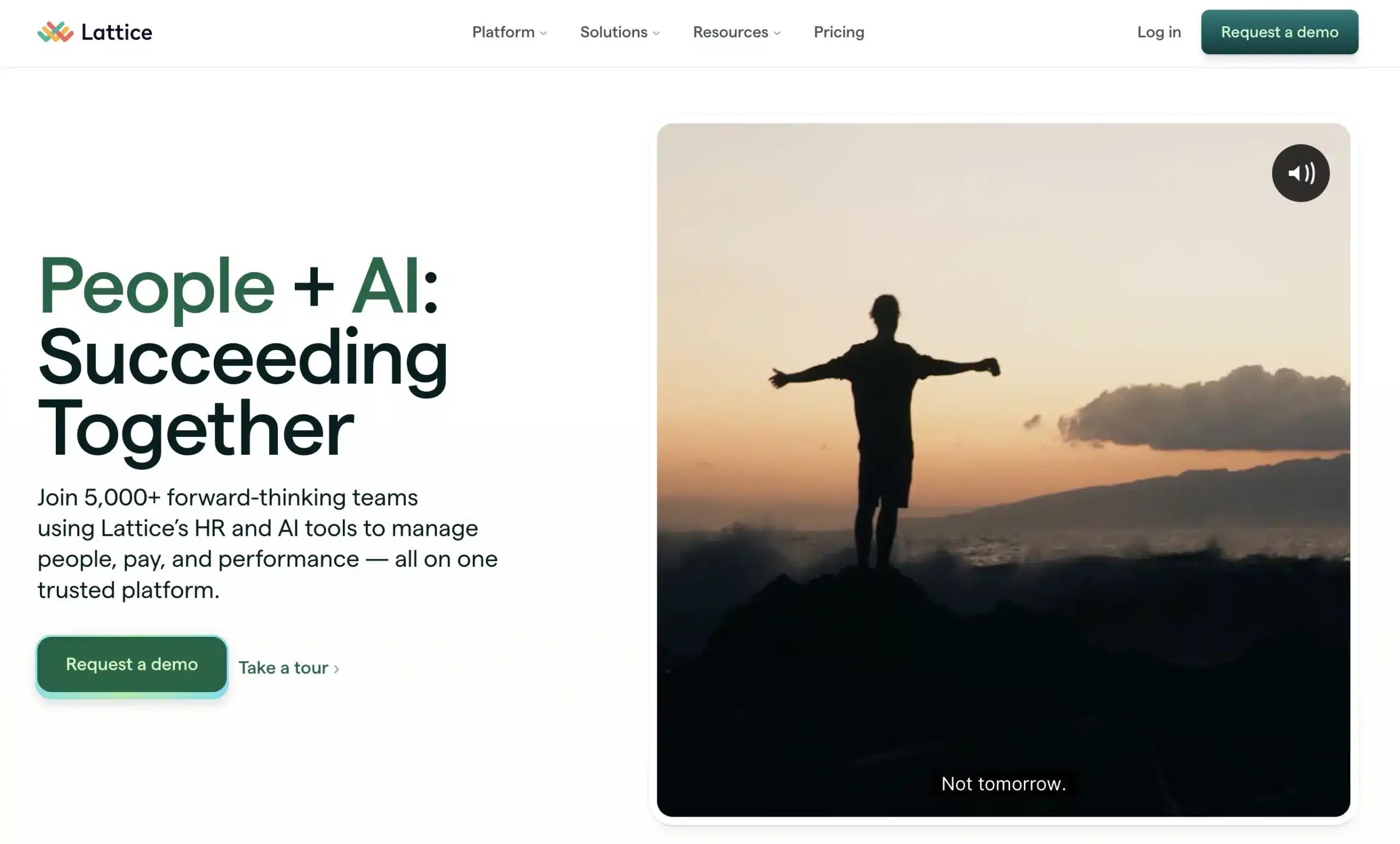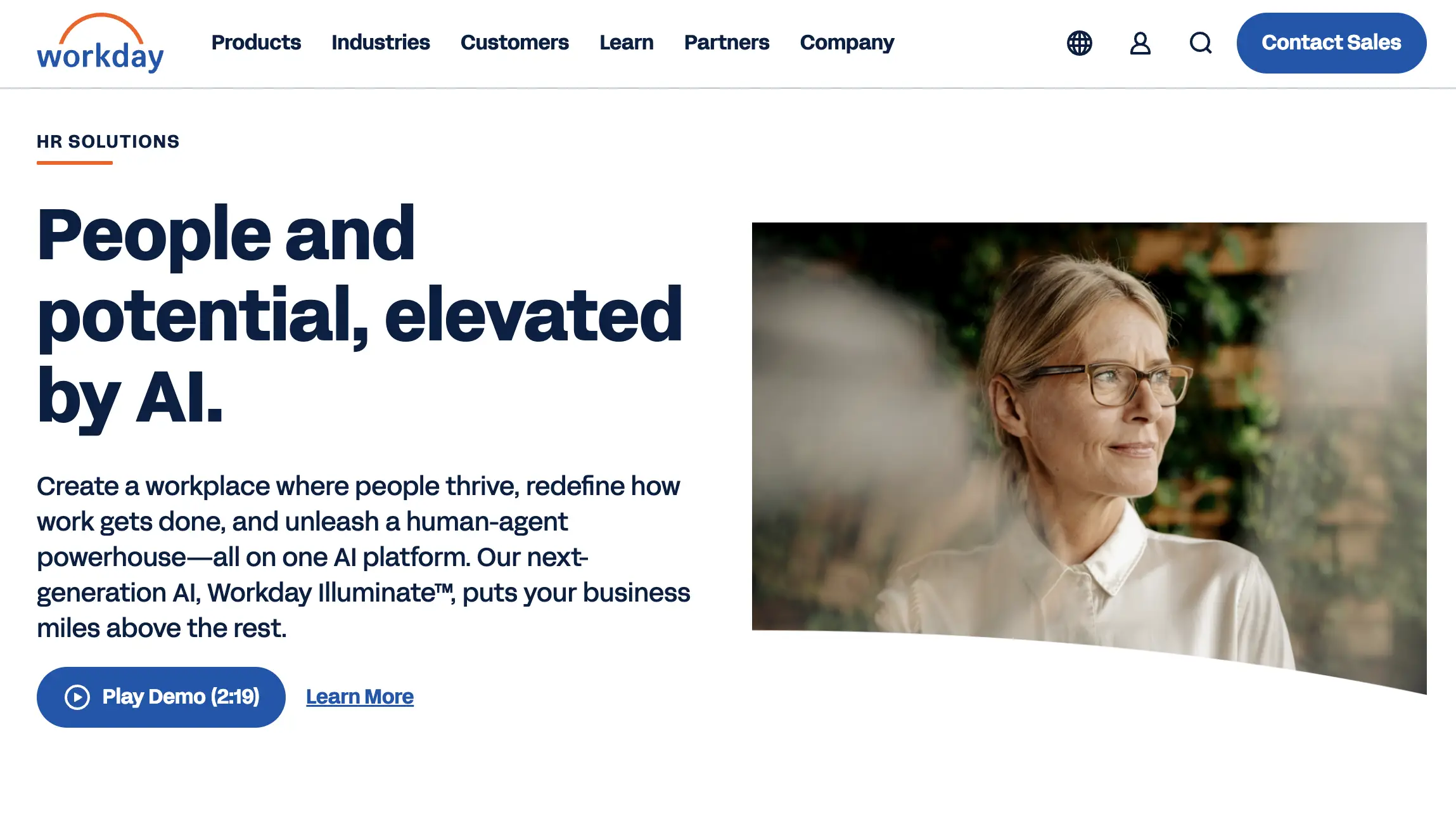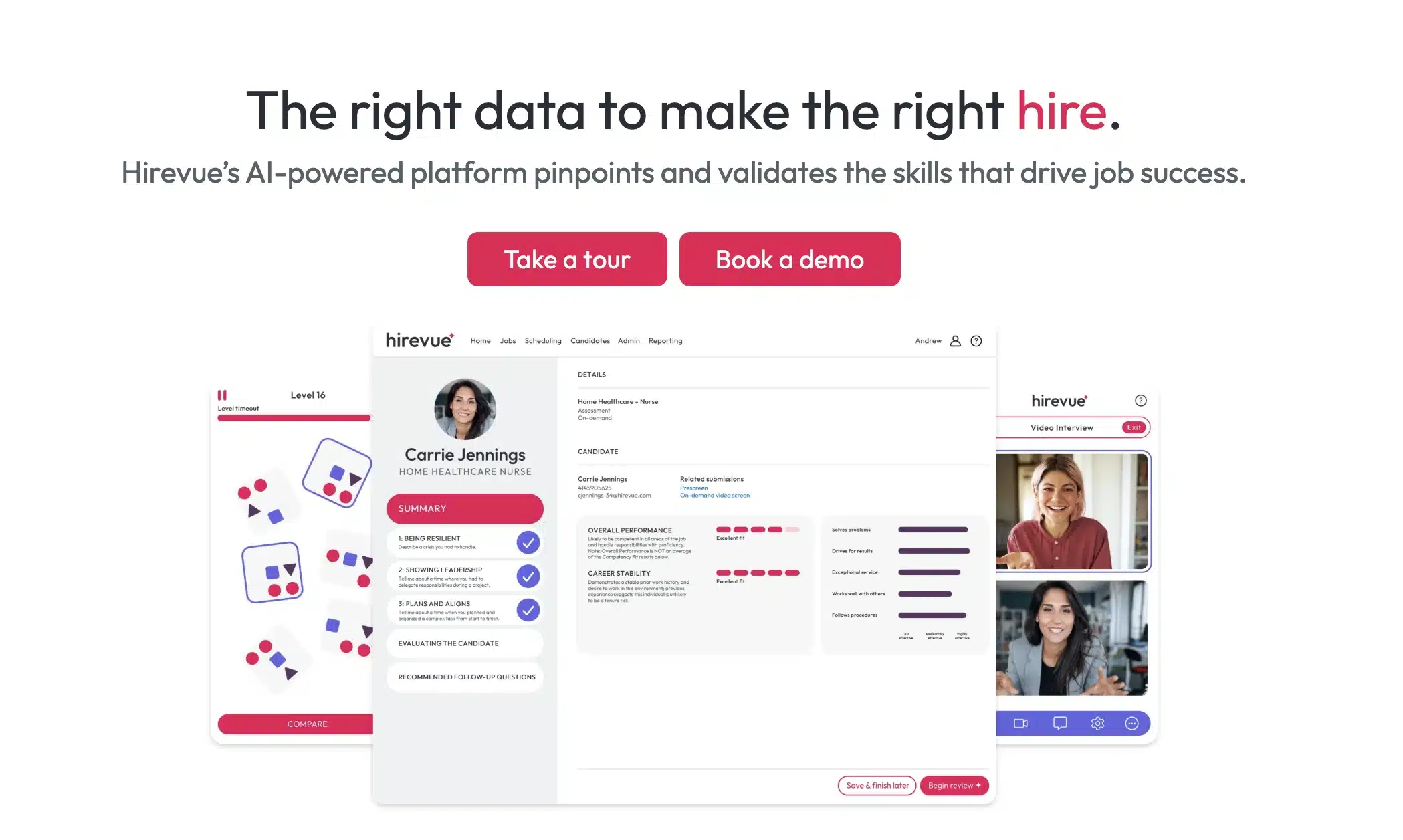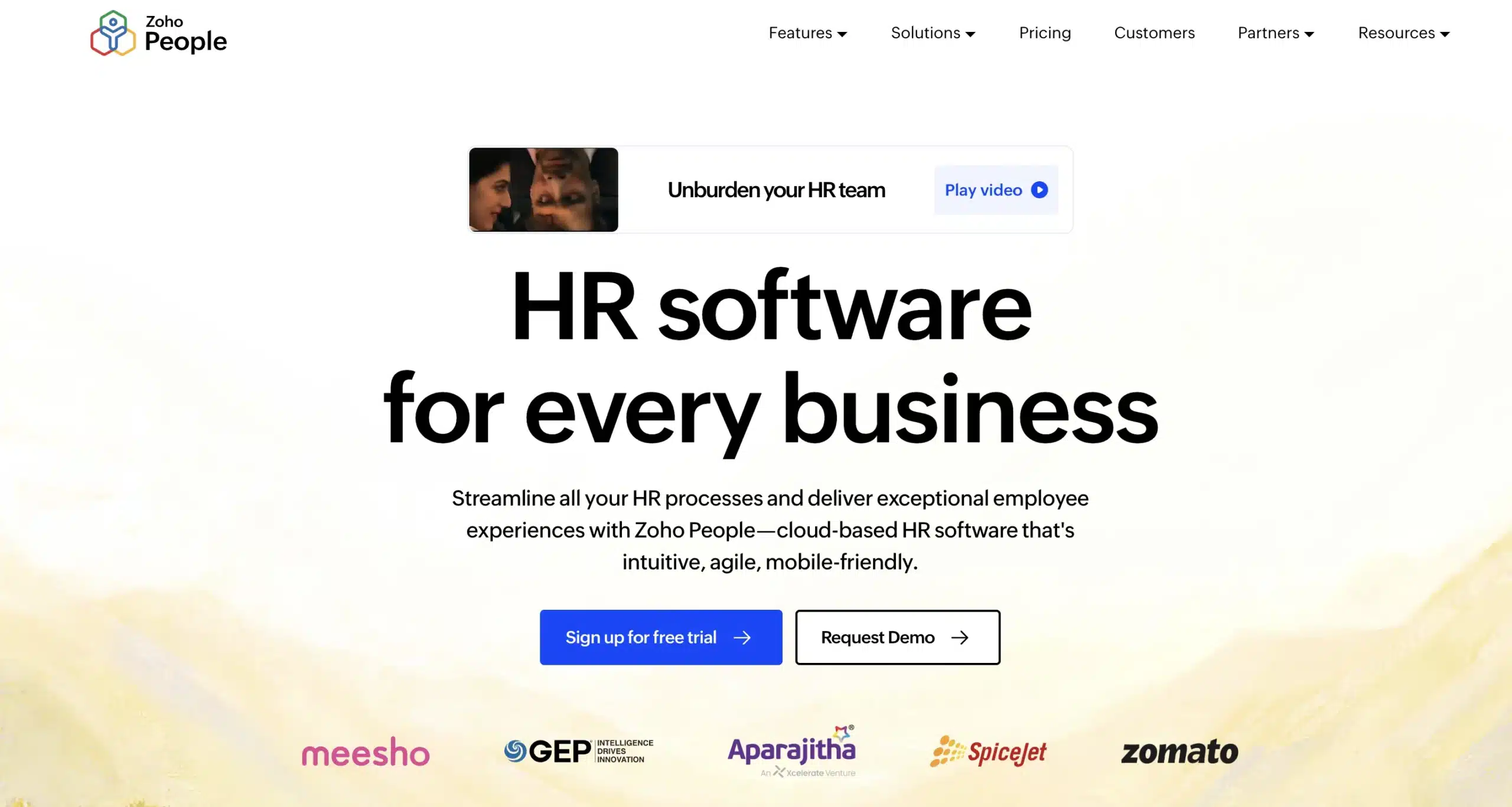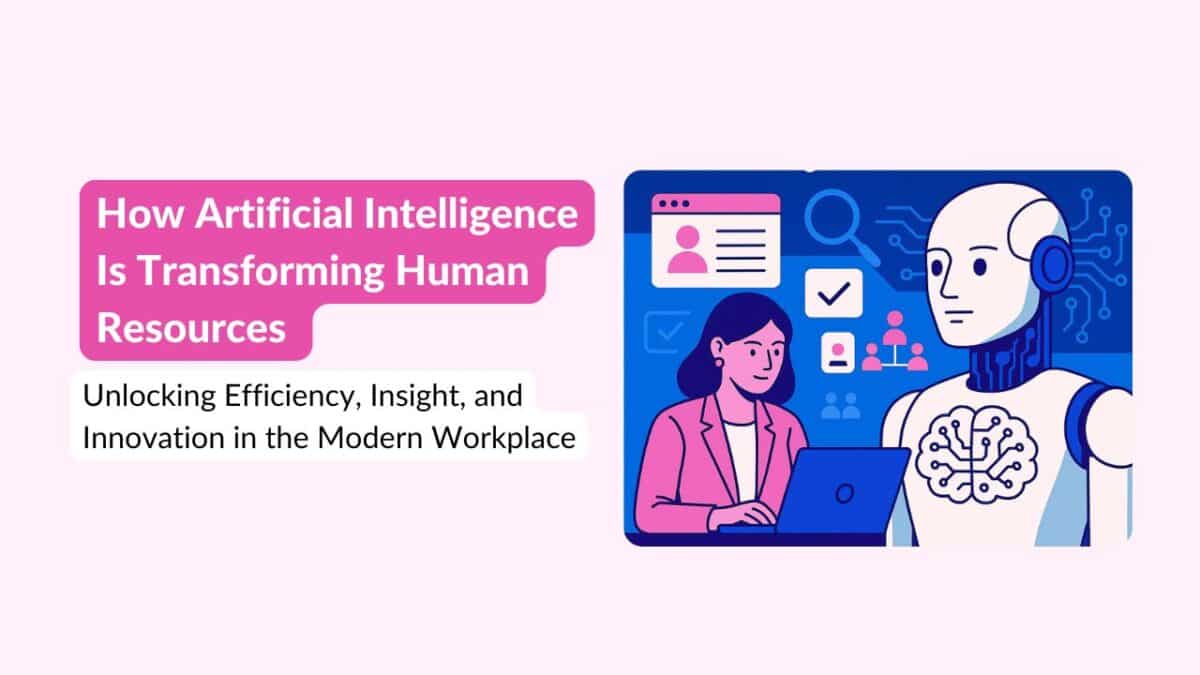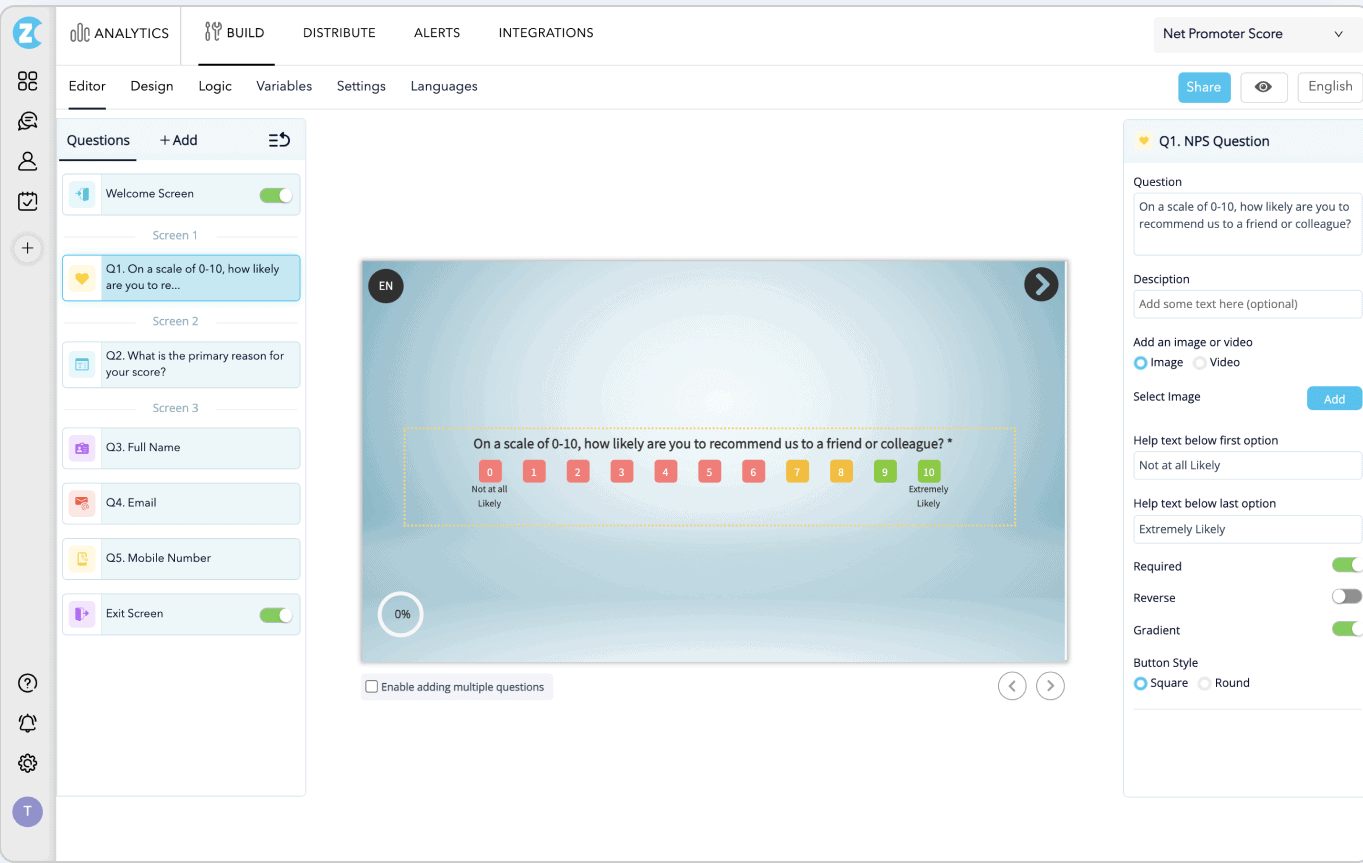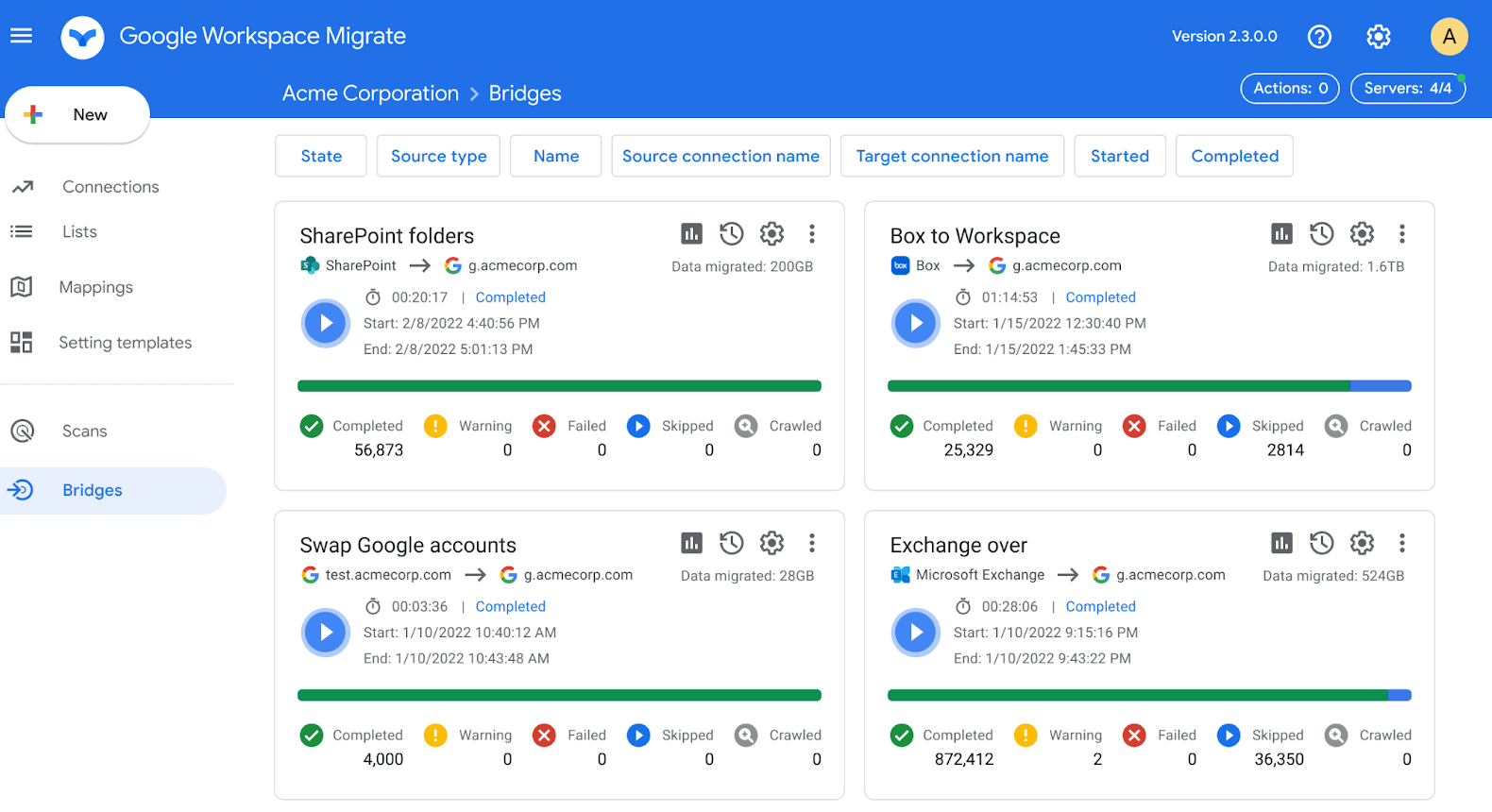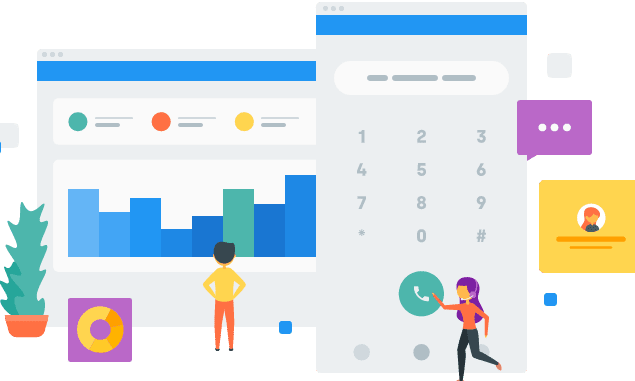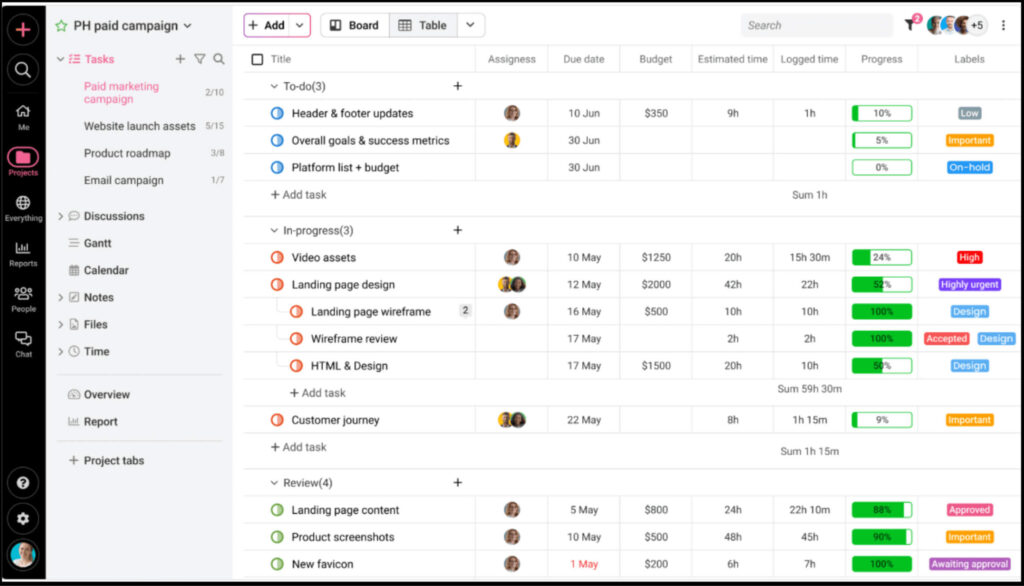HR is no longer just a support function—it’s now a strategic force driving business success. As workplaces grow more complex, digital, and distributed, traditional HR tools are struggling to keep up. That’s where AI-powered HR software is stepping in to transform how organizations hire, develop, and retain talent.
With 76% of HR professionals warning that companies risk falling behind if they don’t adopt AI, it’s clear this is more than a trend—it’s a business imperative. AI is doing far more than automating admin tasks. It’s helping teams anticipate attrition, personalize employee experiences at scale, and make smarter, faster people decisions.
In this article, we explore 7 leading HR platforms powered by AI that are reshaping the future of workforce management. From hiring and onboarding to performance, learning, and retention—these tools are built to align people strategies with business goals.
Why Must Businesses Invest in Top HR Software Using AI
Today’s workforce is more diverse, digital, and dynamic than ever before. This is why HR leaders require more than manual processes and gut feeling; they need AI-driven agility.
Key benefits of investing in top HR software using AI:
- Minimizing Bias in Hiring: AI tools offer skills-based shortlisting, which helps avoid unconscious bias and promotes fairer hiring decisions.
- Forecasting Attrition: Predictive analytics for employees at risk of leaving their organizations enables early intervention by HR before valuable talent is lost.
- Personalizing Employee Experience at Scale: Onboarding, learning, and engagement journeys are facilitated with AI assistance, utilizing customized approaches for each employee, automatically and at scale.
- Automating Feedback Loops: AI-powered surveys assess employee input instantly and function in real time, enabling prompt action.
- Improving Workforce Planning: AI-based tools help managers and HR leaders to assess future hiring and upskilling needs, internal workforce planning, unbiased work allocation, and productivity enhancement criteria.
- Analyzing Employee Sentiments: The modern AI-based feedback and survey systems help leaders assess the pain points of employees and encourage them to take action before the occurrence of disenagement or high attrition.
- Enhancing Compliance: Organizations need to stay compliant with certain internal and external policies and regulations. AI-based software helps them abide by such laws, improve audit quality, and prevent penalties or fines.
- Planning Career Goals: HR platforms help leaders and employees assess their individual career goals and form learning paths. Such measures fill skill gaps, empower employees, enhance productivity, and boost retention.
12 Features to Search for in Top HR Software using AI
Here are 12 key features that top companies prioritize when selecting the best AI-powered HR software in 2025:
1. AI-Powered Recruitment
Search for advanced tools that use AI to scan resumes, compare candidate skills to the requirements of a role, and set up interviews automatically. Tools like HireVue and Manatal shorten the hiring process and enhance the match between a candidate and a job.
2. Sentiment Analysis
Artificial intelligence classifies the emotional tones present in the various types of text and speech feedback input provided by employees in surveys, chats, or even internal forums. This alerts HR concerning any negativity that, if left unattended, may spiral into disengagement or overt dissatisfaction.
3. Talent Risk Identification
Advanced analytics will enable HR leadership to identify any signals that a particular employee may be experiencing burnout or declining performance. This kind of visibility allows proactive HR intervention to take place before a problem arises.
4. Smart Onboarding
AI adapts onboarding steps based on employee role, department, and even learning preferences. Tools like BambooHR help in a more engaging and personalized start.
5. Customized Learning & Development
Instead of generic learning tracks, AI looks into contextual data, like performance gaps, role changes, and team goals, to recommend the most appropriate training content. Agentic AI for Talent Management by Engagedly recommends skill improvements and contributions to projects. Discover how Engagedly’s AI powered platform streamlines HR processes, elevates performance outcomes, and enhances every stage of the employee lifecycle.
6. Virtual HR Assistants
AI chatbots answer any HR-related queries today. Spoke-type tools allow employees to log service tickets and route inquiries in real time.
7. DEIB Analytics
AI-enabled dashboards assess Diversity, Equity, Inclusion, and Belonging. Tools like Lattice don’t just analyze demographics but also which possibilities and recognition are distributed equitably.
8. Automation
Seek platforms that enable employees to handle their HR-related tasks independently. Engagedly’s Marissa AI, their lead AI assistant, offers predictive performance insights, policy access, and leave management, along with document automation. See how Engagedly brings AI into core people operations to simplify workflows, support data informed decisions, and optimize talent management.
9. Predictive People Analytics
Such tools predict important workforce trends. For example, Visier calculates attrition, absenteeism, and internal mobility rates, so management can react faster.
10. OKRs and Performance Intelligence
The AI monitors the progress about objectives, signaling context whenever HR targets lag or exceed expectations.
11. Nudges and Pulse Insights on Engagement
Select AI algorithms, such as Engagedly, that send personalized nudges to enhance survey response rates, the quality of feedback, and team morale based on behavioral data.
12. Retention Forecasting & Career Planner
More advanced models, such as Agentic AI, examine role fit, career trajectory, and job satisfaction and identify which top performers are at risk and where development can be targeted.
7 Top HR Software using AI for Better People-Oriented Strategies
Below is a closer look at the 7 Top HR Software using AI in 2025:
1. Engagedly (AI-Powered Talent Enablement Platform) (Chnage this image)
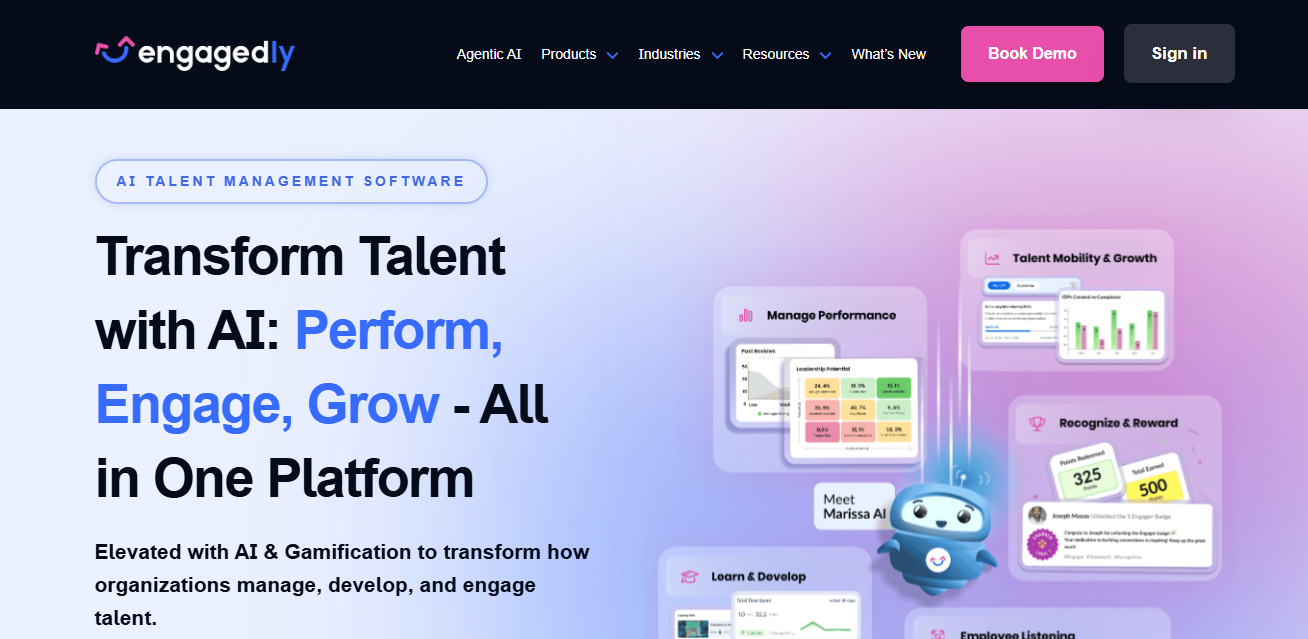
- Overview: Engagedly is an agile performance management and development solution that offers managers and employees a simpler way to help them monitor and improve performance.
- Differentiators: It’s differentiated by how it exposes API-first proprietary AI engines. Marissa AI is best used for performance insights. Agentic AI is a great tool for career pathing throughout the employee experience stack.
- AI Features: Marissa AI provides context-sensitive actions during reviews and feedback, and Agentic AI creates development and internal mobility paths based on real-time data.
- Pros: Very modular and perfect for fast-growing businesses in multiple functions. Provides unique feedback on intra-connections with performance measures and learning. Great for HR teams looking for proactive intervention tools.
- Cons: Its robustness can be more than what smaller teams want. The execution might demand a hands-on approach to onboard and train to reach its full potential.
- Pricing: Custom pricing based on features and team size; must contact for a quote.
2. HireVue (AI for Smart Hiring Decisions)
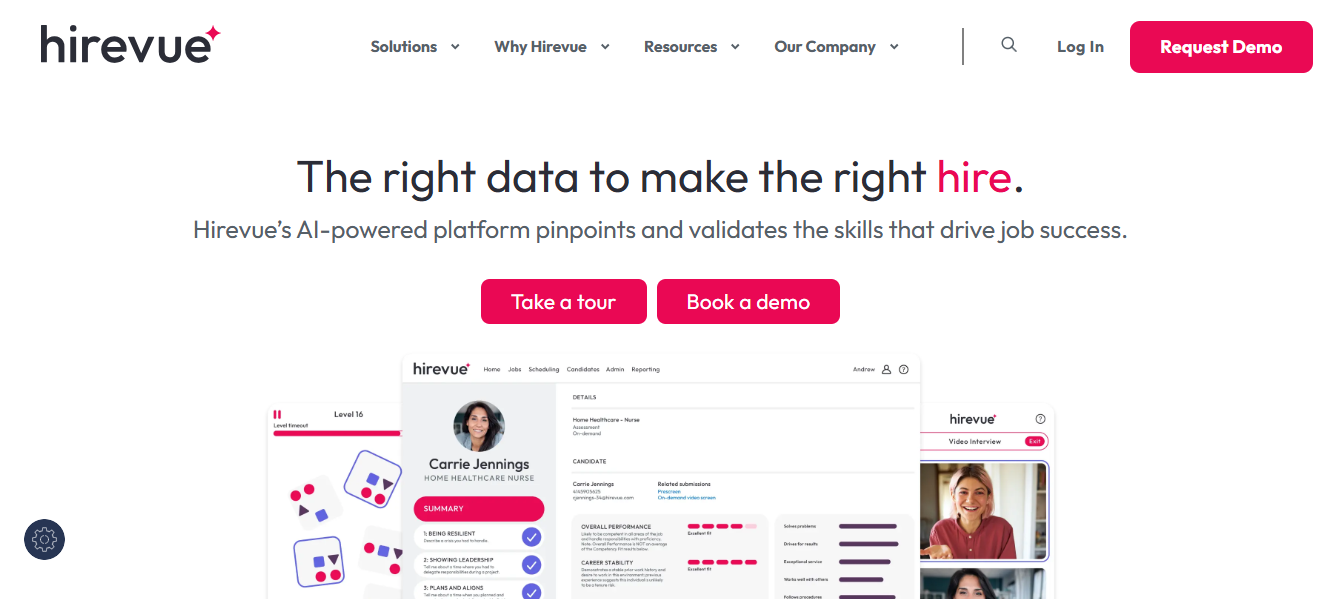
- Overview: HireVue is an AI-driven hiring platform that improves candidate evaluation in video-based interviews with data analysis, predictive analytics, and assessment tools.
- Differentiators: It leverages AI to analyze video interviews, evaluating verbal, facial, and linguistic cues to determine job performance and cultural fit.
- AI Features: It is a recruitment platform that analyses the tone, vocabulary, and expression in recorded interviews, combined with a list of structured questions. It helps make high-volume hiring more consistent.
- Pros: Ideal for organizations that hire extensively and conduct thousands of interviews. Slashes through recruiter complexities and makes the hiring process faster and more objective.
- Cons: Facial and tonal analysis based on AI can raise ethical concerns when transparency and auditability are lacking. There may be restrictions on customization without enterprise support.
- Pricing: Starts around $35 per recruiter per month; custom packages for larger teams.
3. Lattice (AI-Powered Performance and Engagement)
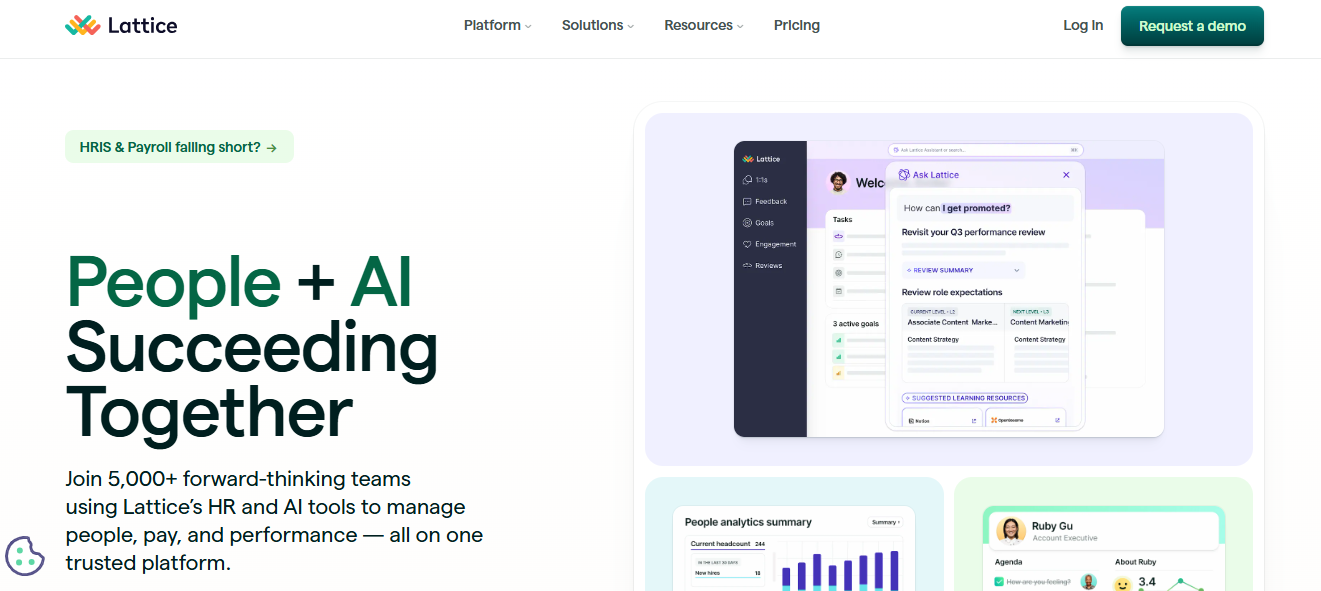
- Overview: Lattice is an easy-to-use, performance-first software that allows HR to manage employee development, growth, and engagement feedback.
- Differentiators: It incorporates artificial intelligence (AI) into its feedback and pulse survey systems to predict disengagement trends and burnout signs, allowing executives to take appropriate action in advance.
- AI Features: Lattice’s analytics derive information from peer feedback and manager reviews. HR departments can detect fluctuations in sentiment and drops in engagement.
- Pros: It’s extremely simple to use and loved by all. It’s modularly priced and best for a scaling team. Provides excellent engagement and goal-tracking tools.
- Cons: It doesn’t cover hiring or onboarding, so it wouldn’t work well on its own for small HR teams.
- Pricing: Begins at $11 per user/month after add-ons.
4. Effy AI (Easy Performance Reviews powered by AI)
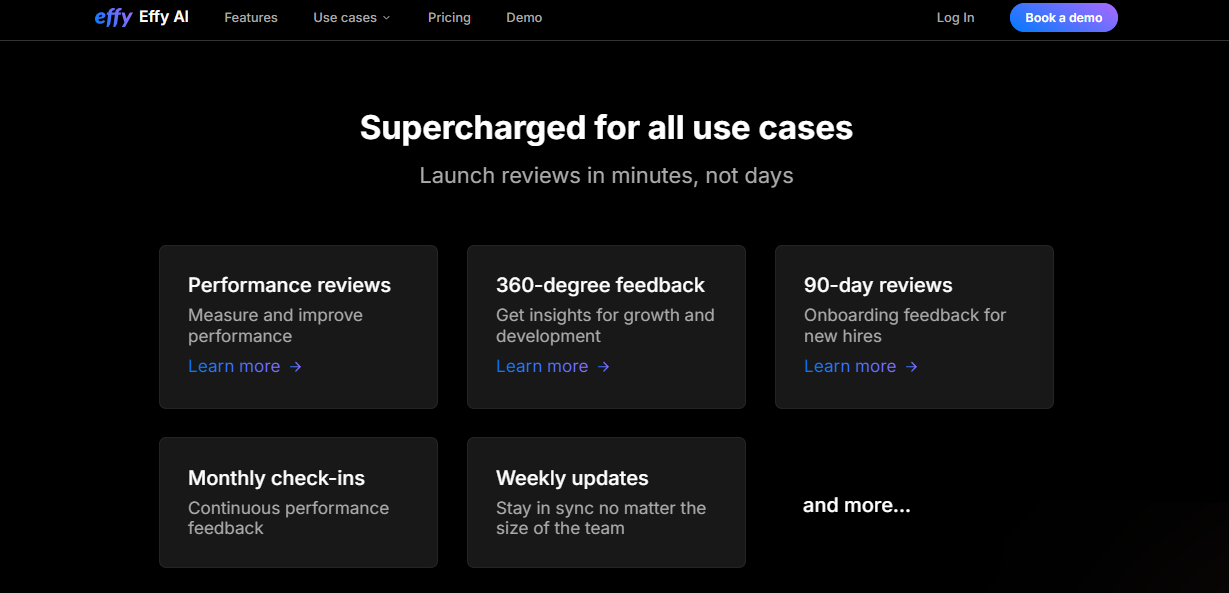
- Overview: Effy AI is purpose-built to simplify 360-degree performance and development feedback. It is well-equipped with AI-generated summaries, feedback prompts, and customized report templates.
- Differentiators: Its GPT-inspired prompts make it easy for users to create constructive, unbiased feedback, saving them up to 60% of the time they would otherwise waste on reviews.
- AI Features: It utilizes AI to sift through written feedback, suggest wording for responses, and compile summarized reviews for each employee to ensure quality and consistency.
- Pros: Quick installation and easy to learn. Solid initialization for startups and mid-sized teams in need of thorough reviews without the burden of full HR systems.
- Cons: No modules for onboarding, analytics, or L&D; limited in scale and scope; and its integrations are not flexible with other systems.
- Pricing: Basic plan is free; paid options start at $4 per user per month.
5. Visier (Workforce Intelligence at Scale)
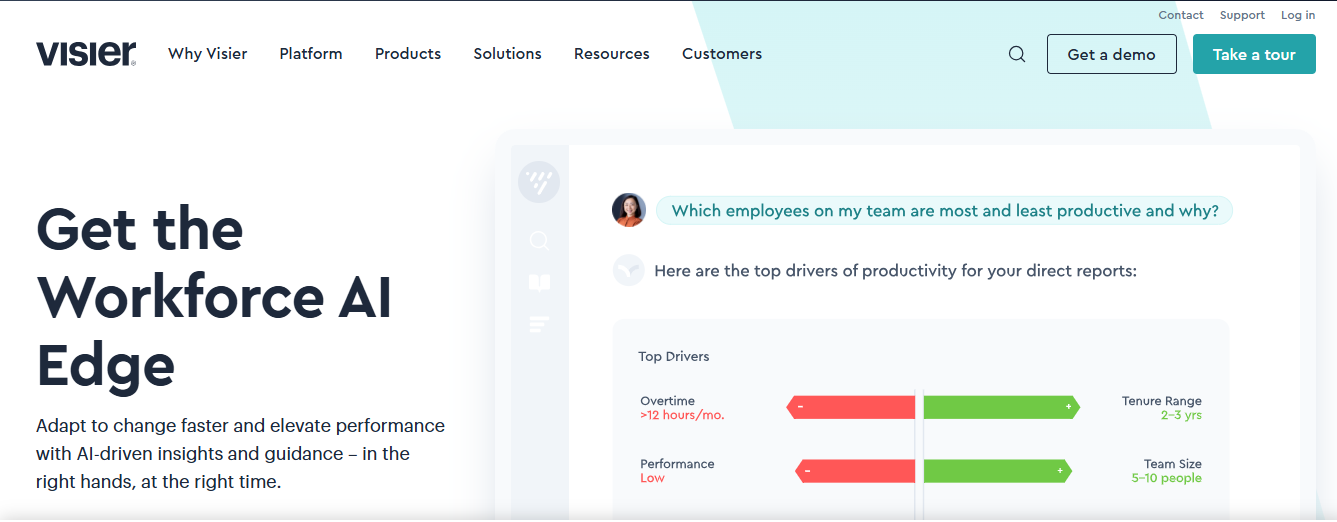
- Overview: Visier is a data analytics software that believes that data should be structured, well-understood, and become the focus of everything HR teams do.
- Differentiators: It pulls data from multiple sources within HR tech stacks, including ATS, payroll, and LMS. This empowers leaders to build a unified, decision-ready analytics ecosystem.
- AI Features: By using predictive modeling and dashboard alerts, its AI identifies workforce trends such as flight risk, pay inequity, and hiring pipeline bottlenecks.
- Pros: Ideal for large businesses with sophisticated reporting requirements. Very informative and helps plan for HR’s future.
- Cons: A steep learning curve, especially for teams that lack data expertise. Its implementation may need analysts or consultants.
- Pricing: Enterprise pricing; contact us for more details and a customized proposal.
6. Eightfold AI (The Talent Intelligence Platform)
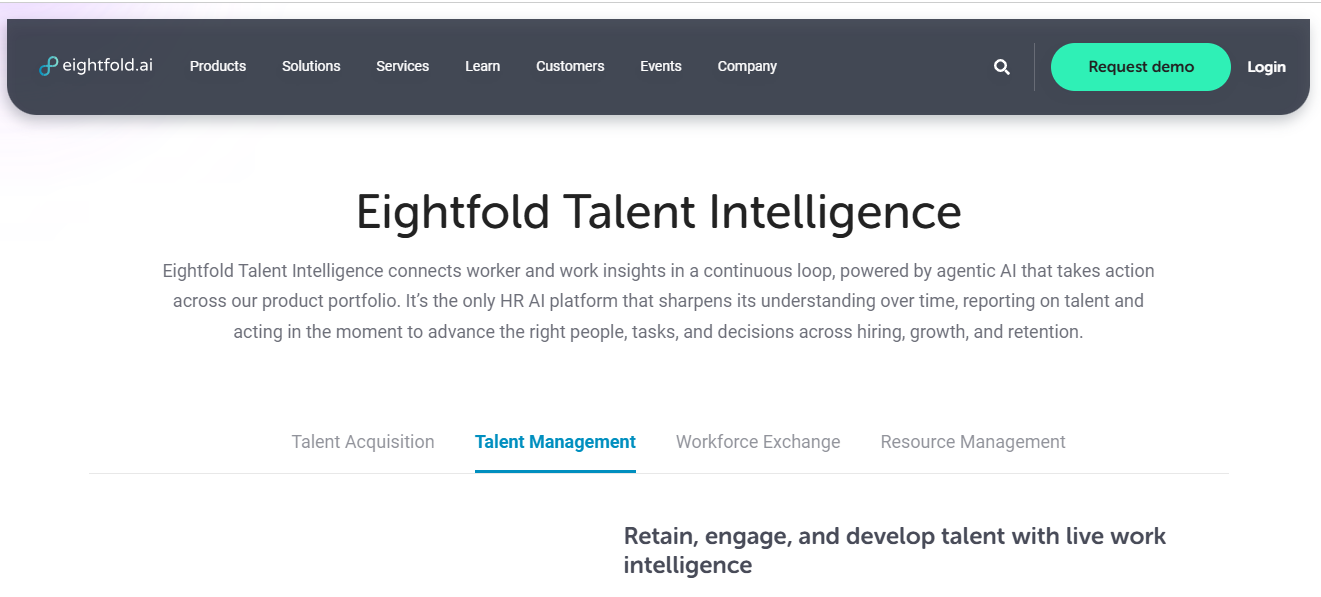
- Overview: Eightfold AI is a next-generation talent intelligence platform that leverages deep learning to match talent with opportunities like external hiring and internal mobility processes.
- Differentiators: It provides a skills-first approach that uses AI to pair candidates with roles they may not have applied for, driving diversity and performance.
- AI Features: From reading resumes and connecting future-fit roles to reskilling opportunities, its AI manages job matching, succession planning, and DEI mapping.
- Pros: Ideal for multinational companies aiming for agility, upskilling, and future-proofing their workforce. Nothing beats diversity and defense in depth.
- Cons: Pricing and complexity make it unrealistic for startups or lean HR teams to consider it. Organizations need stringent collaboration between IT and HR before implementing it.
- Pricing: Pricing is customized and conducted through consultation and a demo of the product.
7. Workhuman (AI and Employee Rewarding and Retention)
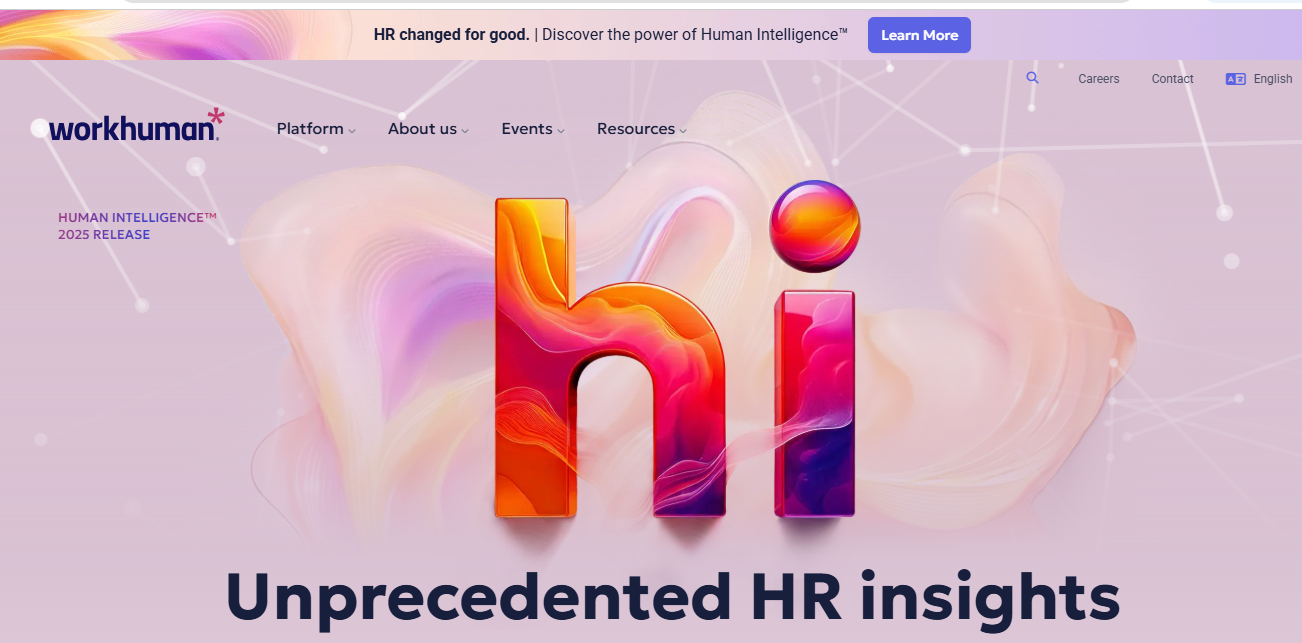
- Overview: Workhuman combines AI with employee experience strategy, recognition, culture analytics, and emotional intelligence to help drive retention.
- Differentiators: It transforms recognition data, who is being appreciated, by whom, and how often. This means predictive insights about engagement and flight risk.
- AI Features: AI-based tools facilitate peer recognition, DEIB participation, and reward data analysis at scale, driving company culture and reducing attrition.
- Pros: Great for organizations that emphasize corporate culture and diversity helping them build a strong culture.
- Cons: It is not a full-suite HR tool. It works best when integrated with existing HRIS or performance systems.
- Pricing: Customized according to the organization’s size and deployment requirements.
Wrapping Up
Manual HR management has evolved into an AI-informed talent strategy, reflecting how companies engage with their employees. These digital improvements enable HR leaders to evolve their roles from being reactive responders to predictive mentors.
What is so compelling about the top HR software using AI reviewed is not just that they are automation-enabled but also how they have been designed in a smart way to interconnect data points across the employee lifecycle.
Among the top tools, Engagedly supports businesses with integrated solutions for performance, development, and engagement.
However, the right platform for your organization ultimately depends on addressing its specific challenges and goals.
Book a demo now to learn more!
FAQs
How does HR software facilitate employee engagement?
Top HR Software using AI boosts engagement by constantly tracking employee sentiment, collecting feedback in real time, and prompting proactive nudges. With learning paths, recognition, and burnout detection, these platforms can also make employees feel heard, recognized, and supported.
What should you look for in the best AI-based HR software?
Seek a platform that includes predictive people analytics, AI-driven performance management, personalized L&D recommendations, automated recognition flows, and agentic intelligence capable of encouraging proactive action.
What is the best HR software for small-budget companies?
Effy is ideal for quick, easy reviews without overwhelming complexity, while Lattice offers excellent engagement tracking and performance insights at a low entry price.

